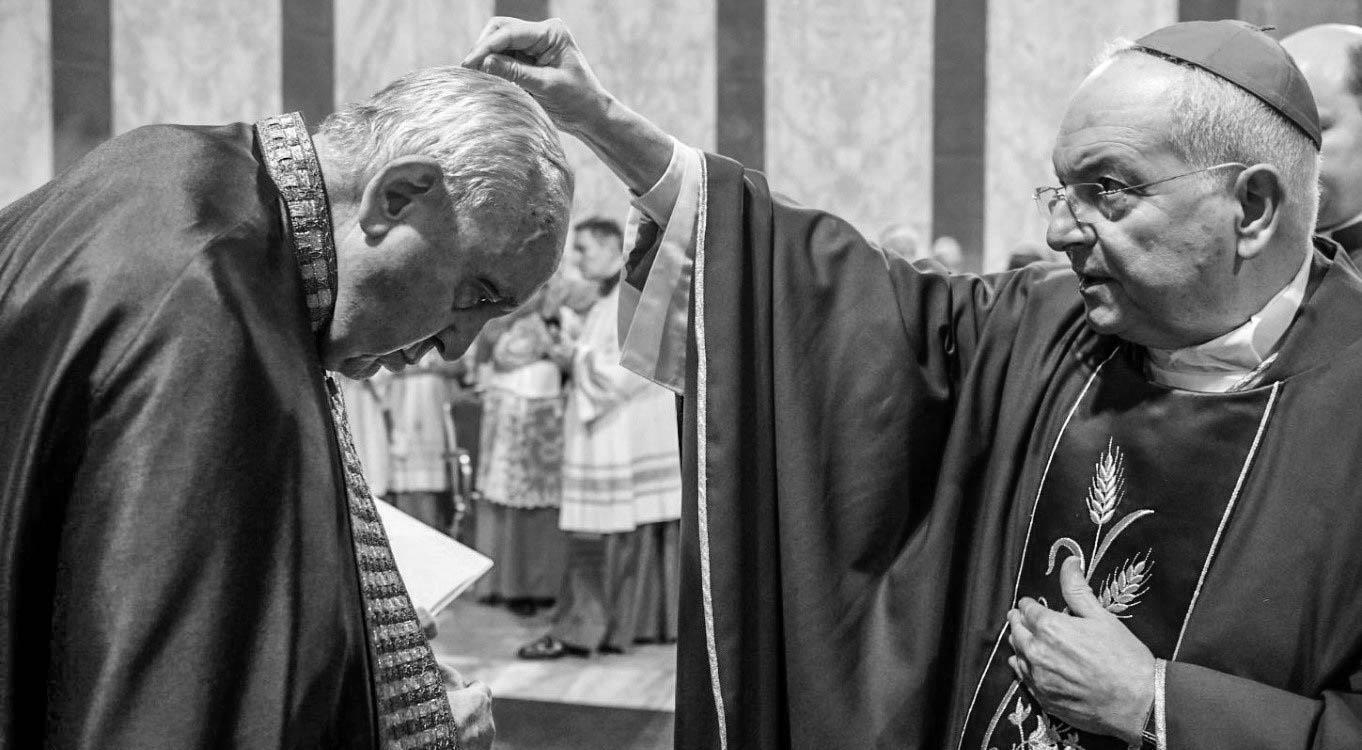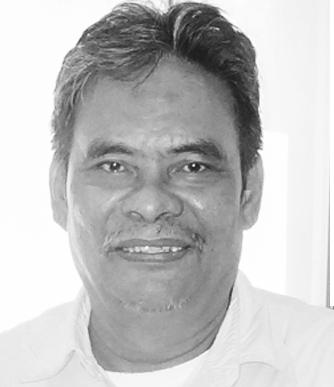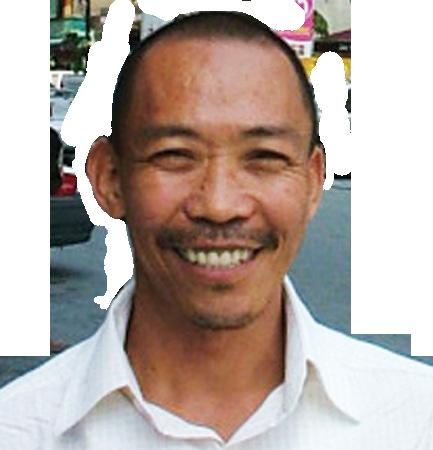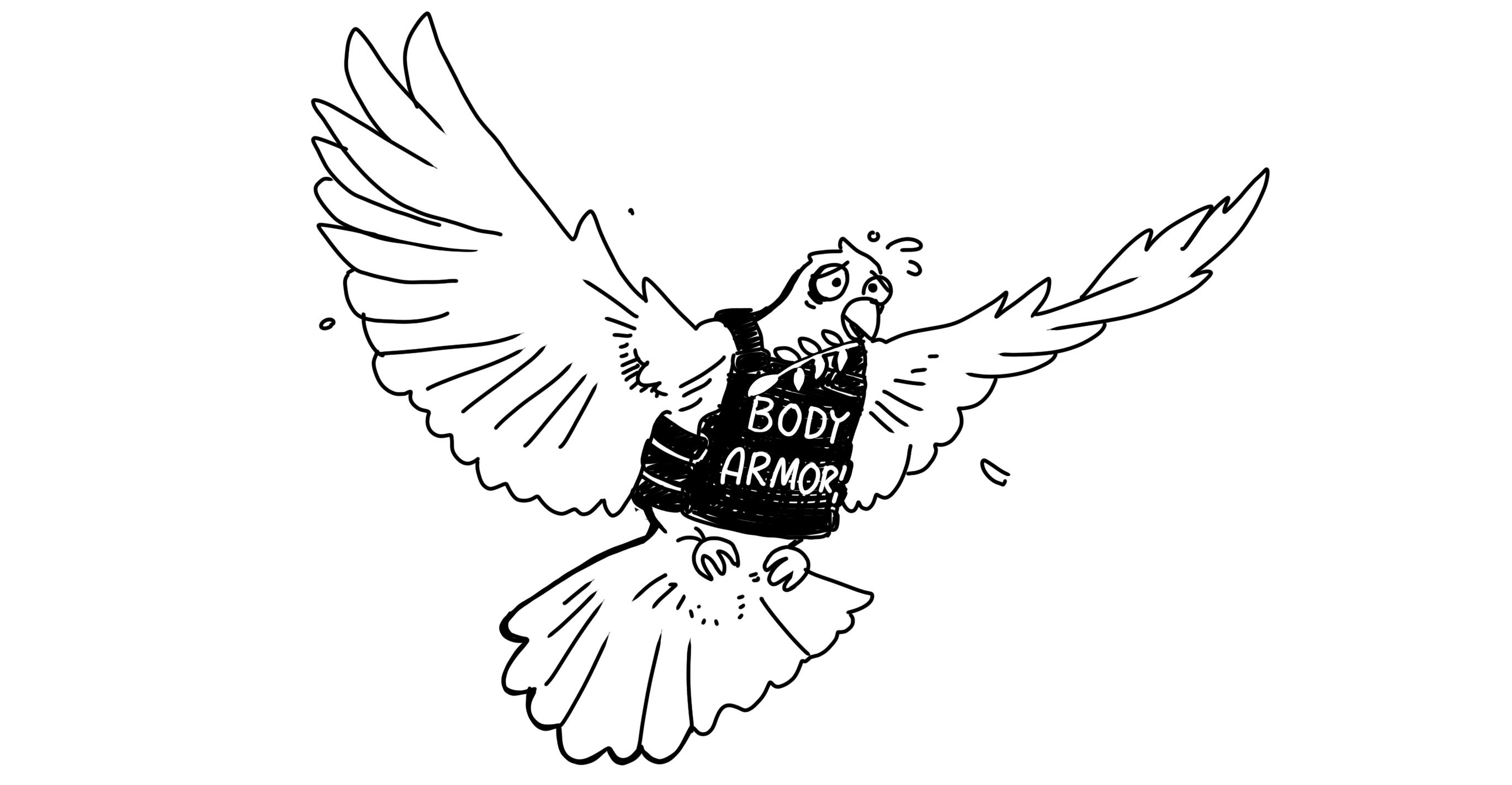
16 minute read
Pope Francis on Ash Wednesday: Free yourself ‘from the dictatorship of full schedules’
VATICAN— Pope Francis said Wednesday that Lent is a good time to examine ourselves in the light of truth, to let go of distractions like overbooked calendars, and to improve our relationships with God and others.
“Let us set out on the path of fasting and use these 40 days to take stock of ourselves, to free ourselves from the dictatorship of full schedules, crowded agendas, and superficial needs, and choose the things that truly matter,” the pope said on Ash Wednesday, Feb. 22.
Advertisement
“This,” he said, “is the favorable time to be converted, to stop looking at ourselves and to start looking into ourselves.”
Pope Francis marked the start of the season of Lent, the penitential period before Easter, with Mass at the Basilica of Santa Sabina on Rome’s Aventine Hill.
Unlike years prior, Francis did not take part in a penitential procession from the nearby Church of St. Anselm before the Mass. The pope entered Santa Sabina in a wheelchair, which he has used regularly for almost one year since developing a problem with a ligament in his knee.
Cardinals, bishops, priests, the Benedictine monks of St. Anselm, the Dominican friars of Santa Sabina, and laypeople took part in the procession, which began with a brief moment of prayer at St. Anselm church. Catholics inside and outside the churches sang the Litany of the Saints as the procession prayerfully walked the roughly 1,000 feet between the two churches.
Pope Francis said at Mass that we should ask ourselves: “How many distractions and trifles distract us from the things that really count? How often do we get caught up in our own wants and needs, lose sight of the heart of the matter, and fail to embrace the true meaning of our lives in this world?”
“Lent is a time of truth, a time to drop the masks we put on each day to appear perfect in the eyes of the world. Lent is a time, as Jesus said in the Gospel, to reject lies and hypocrisy: not those of others, but of ourselves. Look them in the face and grapple [with them],” he said.
The Mass marked Pope Francis’ first time returning to the fifth-century Roman Basilica of Santa Sabina since February 2020.
In 2021, Francis celebrated the Ash Wednesday Mass for a small group of people in St. Peter’s Basilica because of the COVID-19 pandemic. In 2022, Cardinal Pietro Parolin celebrated the Mass in place of Francis, whose knee problem had worsened in that period.
The Ash Wednesday custom of the pope visiting the Church of St. Anselm before walking in procession to the Basilica of Santa Sabina for Mass was started in 1961 by St. John XXIII.
The Basilica of Santa Sabina is the mother church of the Dominicans and the first of the Lenten station churches. It is also Rome’s oldest church to still have its original architecture. The basilica’s large wooden door, which dates to the fifth century, has the oldest known depiction of the Crucifixion.
“Lent, then,” Pope Francis said in his homily, “is a season of grace when we can rebuild our relationship with God and with others, opening our hearts in the silence of prayer and emerging from the fortress of our selfsufficiency.”
“Lent is the favorable time when we can break the chains of our individualism and rediscover, through encounter and listening ― not solitude but through
CARDINAL Jose Advincula of Manila has challenged Catholics on Ash Wednesday to observe the season of Lent with sincerity and pure intention.
He said the traditional disciplines of prayer, fasting, and charity are not intended to be empty but to draw people closer to God and to a life lived out of faith.
“Let the ashes on our head remind us to pray with sincerity of heart, fast in genuine solidarity with the ones who are suffering, and give alms out of hearts that encounter and listening ― our companions along the journey of each day. And to learn once more to love them as brothers and sisters.”
Quoting from the 2006 Ash Wednesday homily of his predecessor, Pope Benedict XVI, Francis said: “Jesus gives ‘advice that still retains its salutary value for us: external gestures must always be matched by a sincere heart and consistent behavior. Indeed, the inspired author wonders, what use is it to tear our garments if our hearts remain distant from the Lord, that is, from goodness and justice?'”
Pope Francis said Wednesday that there are many times our gestures and rituals do not reflect life and truth.
“Perhaps we perform them only to gain the admiration or esteem of others many times,” he said. “Let us remember this: in our personal life, as in the life of the Church, outward displays, human judgments, and the world’s approval count for nothing; the only thing that truly matters is the truth and love that God himself sees.”
He reflected on the Church’s call to strengthen one’s commitment to prayer, almsgiving, and fasting during the approximately 40 days of Lent.
“Let us set out on the path of charity,” he said. “We have been given 40 days, a ‘favorable time’ to remind ourselves that the world is bigger than our narrow personal needs and to rediscover the joy, not of accumulating material goods, but of caring for those who are poor and afflicted.”
“Let us set out, then, on the path of prayer and use these 40 days to restore God’s primacy in our lives and to dialogue with him from the heart, and not only in spare moments,” he continued.
“Let us not neglect the grace of this holy season but fix our gaze on the cross and set out, responding generously to the powerful promptings of Lent,” he said. “At the end of the journey, we will encounter with greater joy the Lord of life ― we will encounter him ― who alone can raise us up from our ashes.”
Hannah Brockhaus/Catholic News Agency
are truly contrite and compassionate,” Advincula said.
“This season is a blessed time for us to turn away from hypocrisy and worldly attachments and go home into the warm embrace of our loving God,” he said.
The cardinal made the remarks during Mass at the archdiocese’s chancery chapel in Manila’s Intramuros district.
People trooped to churches today as they observe the start of Lent, a 40-day period of prayer, penance and almsgiving
Weopened the season of Lent last Ash Wednesday. The ashes that were imposed on our forehead symbolize the call to conversion or “to rend our hearts,” not our garments. In the Jewish tradition, rending one’s garments is an expression of extreme sorrow, same with putting ashes on one’s head. Among all the many seasons of the church liturgy, it is the season of Lent that is most prescriptive. It is a season that calls for action by the Christian disciple. Lent prescribes three forms of action: to pray, to fast and abstain, and to do acts of charity. It is the disciple’s way of walking the Way of the Cross. These actions express one’s solidarity with Jesus’ own sacrifice that brought us salvation.
Reflections
Rev. Fr. Antonio P. Pueyo, DCC tonypoy_dcc0@yahoo.com
First, is the invitation to a more serious prayer. Prayer is the action of lifting up our minds and hearts to God. It is acknowledging that God is real and the foremost value in our life. If that is so, then the Christian believer has to follow the example of Jesus who in the early hour of the morning or in the evening would go off by himself and communicate with His Father. It was such a frequent practice that the apostles asked him, “Lord, teach us to pray.” And He taught them the “Our Father.” There are many kinds of prayer, but what is most fitting for the Lenten season is the prayer of repentance. Lent is the time to examine ourselves and face God with all humility and say, “Lord have mercy on me, a sinner.” This humble prayer, that of the Publican in the temple, pleased the Lord more than the prayer of presenting God with all our accomplishments and good deeds. A more traditional and communal form of prayer we can do during this Lenten season is the Stations of the Cross, new or old version. We can even pray the stations without prayer books or notes. Just look at the image, make a silent reflection and say “We adore you O Christ and we bless you, because by your holy cross you have redeemed the world.”
The second Lenten action is fasting and abstinence. In the in preparation for Christianity’s most solemn feast of Easter.
In Metro Manila, parish churches have reverted to the imposition of ashes on the faithful’s forehead for the first time since the Covid-19 pandemic started.
Advincula said the Ash Wednesday practice of placing ashes on the forehead is a Biblical symbol of repentance, reminding the faithful of man’s sinfulness before God and his mortality.
The priest who imposes the ashes says, “Remember that you are dust and to dust you shall return” or “Turn away from your sins and believe in the Gospel.”
Catholic tradition we are invited to fast only twice a year, Ash Wednesday and Good Friday. The kind of fasting prescribed for adults is not even absolute fasting of no food and water at all during the day but of having only one simple complete meal. Abstinence is abstaining from meat all Fridays of Lent for those who are fourteen and above. Of course sick people and senior citizens are exempted from fasting and abstinence. But fasting and abstinence also covers fasting and abstaining from things that we enjoy but we can give up as a form of sacrifice for Lent. It is a way of disciplining the body and its desires. In present day culture, there are many forms of addiction. People can be addicted to social media, drugs, sex, gambling, alcohol, and other forms of vices. Fasting and abstinence helps us to strengthen our resolve and impose discipline on ourselves. The whole purpose is to gain spiritual discipline. It is being able to say “No” to our desires and simple pleasures, and saying “No” to temptation as our gospel reminds us this Sunday. Jesus said “No” to the temptations of the devil.
The third action is almsgiving, or doing works of charity. This action turns us towards others. Traditionally, the Philippine church has instituted the Alay Kapwa Lenten program. Lenten collections are made to help the social action work of the church. These collections are mostly used for relief programs for those who were victims of disasters like typhoons, floods, fire, earthquakes, and war. With the seemingly unending disasters that come to our country yearly, it is good to establish reserved funds for purposes of relief and rehabilitation. On the personal level, one can of course help anyone he sees in need of help. Our sacrifices can help someone else.
As one can see, these triple actions are concerned with our triple relationships: we pray to God, we renew ourselves, and we help our fellowmen. May we have a Blessed Lenten celebration.
But while everything in this world will come to, and end, the cardinal stressed that “only one thing is forever — the love of God.”
“The ashes we stain on our heads are shaped as crosses in order to remind us of the love of God,” he said. “We are created out of love, we are created for love.” CBCP News
Daily Scripture
Readings
Readings: no. 224, p. 386
1st Reading: Leviticus 19.1-2, 11-18
Gospel: Matthew 25.31-46
Readings: no. 225, p. 389
1st Reading: Isaiah 55.10-11
Gospel: Matthew 6.7-15
Readings: no. 226, p. 391
1st Reading: Jonah 3.1-10
Gospel: Luke 11.29-32
Readings: no. 227, p. 393
1st Reading: Esther 14.1, 3-5, 12-14
Gospel: Matthew 7.7-12
Readings: no. 228, p. 395
1st Reading: Ezekiel 18.21-28
Gospel: Matthew 5.20-16
Readings: no. 229, p. 397
1st Reading: Deuteronomy 26.16-19
Gospel: Matthew 5.43-48
Editorial
How
Oneof the things promised during deliberations for the new Bangsamoro Autonomous Region is the maintenance of peace in the whole region. The word peace has many aspects, but in the case of the former ARMM, people from outside view the region as having a lot of “gubot”, meaning unpeacefulness due to the use of arms. These are in cases of RIDO, political rivalry, or at times simple banditry. With the BARMM, the banditry has been slightly controlled, and residents of the region feel at ease to travel even in the farthest corner of BARMM. It seems that the campaign to control the use of firearms is gaining grounds, hopefully.
However, this illusion has been shattered with the ambush of a prominent political leader in his own turf. Some say this is due to a long running political rivalry in the province, but it has placed a dent on the otherwise changing impression on BARMM by the rest of the nation and the world at large. Residents of BARMM swear to the new peacefulness that pervades in the region but this can be achieved in the long term if everyone works towards this goal. Political rivalry may also exist in other parts of the country, but the focus is here where the leaders are expected to be in unity to be able to promote the development agenda which was promised at the negotiating table.
The new mayor of Cotabato City has a lot of work in his hands. With the city located in a delta, the high incidence of flooding is predictable. Now that the “summer season “ is on, it is about time to put in the proper infrastructures in preparation for the rainy season. But this should be in coordination with the neighboring LGUs. Most of those who evacuate to the city because of flooding comes from other areas. There should be a coordinated effort among the LGUs to provide for the needs of their own constituents, and not leave the problem to the city government. We have to bear in mind that climate change has created havoc on the scheduled activities that government agencies have been practicing for long.
Aside from the influx of evacuees whenever there is heavy rain, the city has to be prepared for the repairs on the roads and bridges. Repairs on roads that are unpassable or destroyed by rain create a terrible traffic that affects the lives of city residents.
Since many of the employees of BARMM come from neighboring areas, the impact on the length of work done is hard to quantify. The traffic condition has set back also the city’s economy and the usual activities. After the COVID pandemic, so much have to be done to put the city in its normal pace. Of course, the neighboring areas also contributes to the traffic condition with its neglect of destroyed bridges and road slips which must be done in coordination with BARMM.
The most we can suggest is for everyone in the regions to put their acts together for peace and development and work for the betterment of people residing and working in Cotabato City. MC
Onceagain, the blessed season of Lent is upon us members of the Catholic Church in the Philippines.
On Wednesday, February 25, Ash Wednesday, during Eucharistic celebrations in various churches around the country, blessed ashes from burned palms used on the previous Palm Sunday were applied in the shape of a cross on the forehead of each worshipper. It is meant to represent mortality. Thus in the past the cross is marked on the forehead with the small blessing: “Remember that you are dust and to dust you shall return.” It also represents penance which is why these days the cross is marked on the forehead of each faithful with the blessing: “Repent and believe in the Gospel.”
The priest who officiated the early morning mass at our local church on Ash Wednesday mentioned about Pope Francis’ Lenten message, where, using the story of Jesus’ Transfiguration, the Pontiff encourages Catholics to “Listen to Him.”
Lent, the Pontiff said, is a time for us to listen to Jesus through the Word of God which we hear at Mass or through daily readings of the liturgy. He also reminded Catholic faithful: “In addition to the Scriptures, the Lord speaks to us through our brothers and sisters, especially in the faces and the stories of those who are in need.”
Even as we are called to pray, focusing on our need for God’s forgiveness, to fast and abstain from something to reduce distractions and focus more on God, so are we called to put our faith into action.
On February 17, The Vatican’s Dicastery for Promoting Integral Human Development announced that it will hold a communication campaign based on Pope Francis’ Lenten message. Considering the task it was given when it was formed by Pope Francis in 2016, the Dicastery’s messages are expected to provide Catholics worldwide guidance on how they can “put faith into action” by helping promote the integral development of the person in light of the Gospel and in line with the Social Doctrine of the Church. The Dicastery, formed through the union of four
ONEwould wish to be able to host scholars, pundits, thinkers, poets, peace mediators in one common platform to bind them together. Guess it might be the science of food technology, and sumptuous servings of native menu courses that could get them together in one dining table.
It’s a dream coming true: Many thanks to the couple Atty. Anwar Malang and Melindi Bañas Malang, owners of the city’s Pagana Resto, for hosting the preparation and serving of popular Magindanaon-Iranun menu dishes for a bon appétit coffee table book project of the Department of Foreign Affairs (DFA). The occasion is tentatively scheduled in March before the Ramadan.
The bon appétit coffee table book is being developed on foods preparation and hosting in Mindanao by the MSU-IIT Center for Culture and Arts. Poet and fervent advocate of local cultures, Dr. Christine Godinez-Ortega, a retired MSU-IIT professor of English Literature, and another distinguished MSU-IIT alumnus, the awardwinning journalist, photojournalist, Bobby Timonera, will be here to co-host with the Malang couple and document the preparation and servings of major Magindanao native dishes—hopefully in seven courses.
Gemma A. Peñaflor, Administration and Marketing Executive
Julito P. Torres, Circulation Officer

Karl John B. Daniel, Graphic-Layout Artist

COTABATO CITY / ARMM CORRESPONDENTS
John M. Unson, Ferdinandh B. Cabrera, Charlie C. Señase
Nash B. Maulana
NORTH / SOUTH COTABATO CORRESPONDENTS
Williamor Magbanua, Romer “Bong” Sarmiento, Roel Osano & Drema Quitayen Bravo CARTOONIST

Lourd Jim Diazon
In Christine’s list are Cheng Xu, a Ph.D. student from the University of Toronto in Canada, Datu Michael Mastura and his wife Madam Lourdes Hadja Salama Veloso-Mastura, and an ambassador. Collaborating in mine are Prof. Abhoud Syed Lingga and his educator wife, Bai Laga Jo Malaguiok-Lingga, MP Engineer Aida Silongan, concurrent Minister of the BARMM Ministry of Science and technology (BARMM MOST), Engineer Abdulrakman Asim (ME), Engineer Moammer Tabara, and Engineer Nasrudin Buisan, all holding specialized, directorial, or supervising positions at the MOST BARMM, and Atty. Naguib G. Sinarimbo and wife tourism executive, Dr. Ross Alonto.
The BCCRRE (Bangsamoro Center for the Continuing Review of Renewable Energy) will be providing relevant domestic and administrative support for the project (behind the scene)—the science of food technology and punditry at food tasting and critiquing, being the common thread that links the “endangered species” that they are of the sectors mentioned.
It’s been a long way through for the Pagana Resto which has since expanded to the tourism industry of transient accommodation for hosting training sessions, as well as visitors and travellers on cheaper options in variety of decent lodging-cum-dining packages. Such is
Pontifical Councils – Justice and Peace, the Pastoral Care of Migrants and Itinerant People, Cor Unum, and Health Care Workers – is tasked to express the Church’s attentiveness in the fields of justice, peace, the safeguarding of all of Creation, as well as in those that concern health and works of charity.
The clear singular message is we cannot be truly, fully Christian unless we hear our Lord Jesus “speak to us through our brothers and sisters, especially in the faces and the stories of those who are in need” and take action on their situation guided by our faith. We need to stand with and for those who seek justice and peace, those whose rights are being trampled upon and fighting for it that they may stand with dignity, those whose lives are threatened by programs and projects that similarly threaten the very land and environment upon which they rely on, those at the periphery of society who are most often neglected, forgotten and abandoned.
This Lent we are challenged once again to reflect on our lives in the light of our faith, in the light of our being Christian. And as we do so, may we hear that voice amid the noise and din, the one calling us to tread a path that is often difficult and less popular but one that will lead us to Easter.
Speaking of providing a helping hand to those in need, The Philippine Catholic Church’s social action and humanitarian arm is helping raise aid for victims of the devastating earthquake that hit Turkey and Syria.
P enlight
Nash B. Maulana nash.penlight@gmail.com
a long-standing commitment on my part to Atty. Anwar Malang to help promote the establishment through the print media. At long last, it’s fulfilled. My wife Ilyne cooks and I write about what she cooks.
***
Elsewhere in the World, Nobel Peace Prize (2022 Awardee) Oleksandra Matviichuk writes in an email to this columnist, as he takes up a new ugly face of armed conflict in the protracted Russian war on Ukraine: that Russia has taken thousands of Ukrainian children into Russian re-education camps.
“Many families have almost no way to get their children back,” writes Matviichuk, the Ukrainian human rights lawyer and the head of Ukraine’s Center for Civil Liberties, awarded the 2022 Nobel Peace Prize.
Working with Avaaz, an online platform of peace and human rights activism, the pretty thinking Matviichuk says “Investigators just confirmed that Russia has taken thousands of children from Ukraine and put them into Russian re-education camps. And many families have almost no way to get their children back.”
“Governments must speak out immediately and issue a united call to bring Ukraine’s children home, and hold those responsible to account,” Avaaz writes as it commits to “deliver our call with a massive media stunt outside the European Council, pushing our leaders to act.”
Also a Reuters news dispatch datelined Washington D.C. (February 14) reports that Russia has held at least 6,000 Ukrainian children - likely many more - in sites in Russian-held Crimea and Russia whose primary purpose appears to be political re-education, according to a U.S.-backed report published on Tuesday.
“The report said Yale University researchers had identified at least 43 camps and other facilities where Ukrainian children have been held that were part of a “large-scale systematic network” operated by Moscow since its February 2022 invasion of Ukraine.








